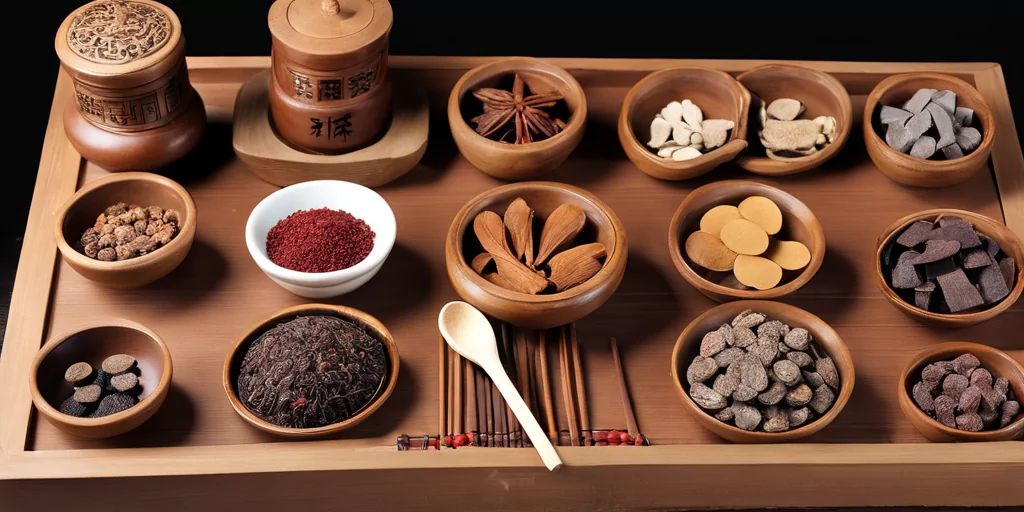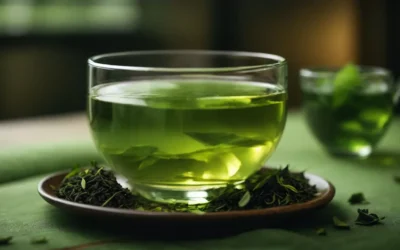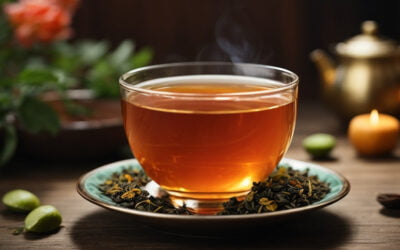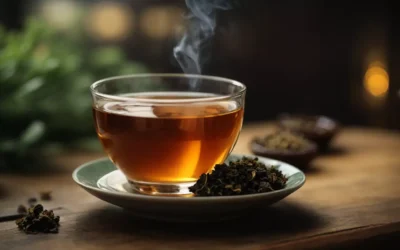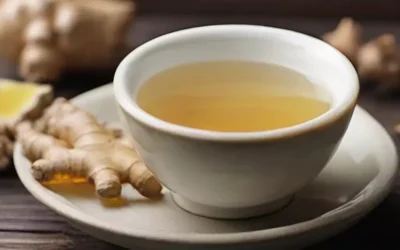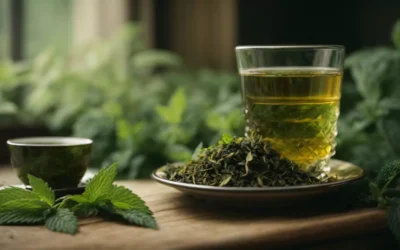Chinese herbal medicine, along with moxibustion and real acupuncture, is an integral part of Traditional Chinese Medicine (TCM). With its rich history spanning thousands of years, herbalist medicinals have been used in TCM practices. TCM, also known as traditional medicine or oriental medicine, is a holistic healthcare system that focuses on restoring balance and harmony within the body using herbal therapy. It is an alternative approach to modern medicine. This ancient healing practice of oriental medicine operates on the concept that imbalances in the body’s energy, known as Qi, can lead to various health problems. It utilizes acupuncture points and herbal therapy as part of its traditional medicine approach.
By using a combination of traditional medicine, herbs, and natural substances, TCM aims to address the root cause of ailments rather than merely alleviating symptoms. Herbalists and acupuncturists use medicinals and acupuncture points to treat patients. The diagnosis and treatment in Chinese herbal medicine by a TCM practitioner are based on specific terms and theories unique to this practice. Acupuncture points, medicinals, and therapy play a crucial role in this process. For example, traditional medicine (TCM) distinguishes between “heat” and “cold” entities within the body and identifies interior or exterior qualities of health issues through acupuncture points and yin diagnosis.
Research studies have shown promising results regarding the efficacy of Chinese herbal medicine in addressing a wide range of health concerns, including medicinals, acupuncture points, therapy, and yin.
- Chinese Herbal Products
- Benefits of TCM
- Herbs used in Chinese medicine
- Chinese herbal extracts
- How Does TCM Work?
- Safety Considerations for TCM Use
- History of Traditional Chinese Medicine (TCM)
- Conclusion
- FAQs
Chinese Herbal Products
Chinese herbal products, also known as traditional medicinals, have gained popularity as an alternative form of medicine. These products utilize acupuncture points and are considered a natural alternative to drugs. These substances are derived from natural sources such as plants, minerals, and animal parts. They are used in traditional medicine and have medicinal properties that can benefit the human body. They are often used in combination with traditional medicine to create personalized formulas for individual patients. These formulas may include medicinals, acupuncture, and various parts of the body.
Derived from Natural Sources
Chinese herbal products, a form of traditional medicine, are made from a variety of natural sources. These products are often used in conjunction with other traditional practices such as acupuncture to restore the balance of yin and yang in the body. Plants, minerals, and even animal parts are carefully selected and processed to create these traditional medicine remedies. These remedies can be used in various forms like acupuncture to target specific organs in the human body. This approach is rooted in the belief that traditional medicine and acupuncture, which focus on the yin and yang balance in the human body, provide us with everything we need to heal our bodies.
Personalized Formulas
One of the unique aspects of traditional Chinese herbal medicine is its emphasis on personalized formulas that balance yin and yang using acupuncture techniques. Unlike Western medicine which often prescribes standardized drugs for specific conditions, traditional Chinese herbalists take into account each patient’s unique constitution and symptoms when creating a formula. This personalized approach is based on the principles of acupuncture and yin-yang diagnosis. This personalized approach in acupuncture practice allows for a more tailored treatment plan based on traditional medicine and accurate diagnosis.
Various Forms Available
Chinese herbal products, a form of traditional medicine, come in various forms to suit different preferences and needs. These products can include acupuncture treatments that aim to balance the yin and yang energies in the body. Traditional medicine offers various forms of treatment, including powders, pills, teas, and topical applications. Acupuncture, a key component of traditional medicine, focuses on identifying patterns in the body’s energy flow. These patterns are categorized as either yin or yang. Powders, traditionally used for consumption, can be mixed with water or other liquids, providing a convenient option for those on the go. Pills offer a quick and easy solution for women to incorporate yin into their daily routine. Teas and topical applications are traditional methods used in acupuncture. Teas offer a soothing way to consume the herbs, while topical applications allow for direct application to affected areas. These methods are based on the concepts of yin and pulse in acupuncture.
Benefits for Female Health
Chinese herbal medicine, along with acupuncture, is a traditional approach that addresses various health concerns specific to women. The practice of balancing yin and yang is central to this holistic approach. From menstrual irregularities to menopausal symptoms, these traditional herbal therapies, combined with acupuncture and pulse diagnosis, aim to restore yin balance and promote overall well-being in female patients. By targeting the root causes of these issues rather than just treating the symptoms, traditional Chinese herbal medicine offers a holistic approach to women’s health. Incorporating acupuncture, which focuses on balancing yin and yang energies, enhances the effectiveness of this approach.
Supplementing Traditional Medicine
While Chinese herbal medicine, acupuncture, and the concepts of yin and yang are often used as alternative or complementary therapies for disease, it is important to note that they should not replace traditional medical treatments when necessary. Acupuncture, a traditional practice, can be used alongside conventional medicine to enhance overall health and well-being. It helps address diseases and balance the yin and yang energies.
Benefits of TCM
Improved Overall Well-being and Increased Energy Levels
Chinese Herbal Medicine, also known as Traditional Chinese Medicine (TCM), offers a wide range of benefits for acupuncture, yin, yang, and disease that can greatly improve one’s overall well-being. By incorporating traditional Chinese medicine practices such as acupuncture into their daily routine, individuals may experience increased energy levels and a general sense of vitality. TCM, which focuses on balancing the yin and yang energies in the body, can have a positive impact on overall well-being.
TCM utilizes various traditional therapies, such as acupuncture, to promote balance within the body’s yang and qi energies. These traditional acupuncture treatments are believed to restore the flow of Qi (pronounced “chee”), or vital energy, throughout the body. When traditional acupuncture is used to stimulate Qi, it can enhance overall physical and mental well-being.
Alleviation of Symptoms Associated with Health Conditions
One significant advantage of traditional Chinese medicine (TCM) is its ability to alleviate symptoms associated with various health conditions through acupuncture and the balancing of qi. Whether it’s chronic pain, digestive issues, or respiratory problems, traditional Chinese medicine (TCM) provides natural alternatives for relief through acupuncture. Acupuncture works by balancing the body’s qi.
For instance, traditional Chinese medicine (TCM) therapy, acupuncture, involves inserting thin needles into specific points on the body to stimulate qi flow and promote healing. Acupuncture, a traditional technique, has been found effective in reducing pain caused by conditions such as arthritis, and migraines. It works by balancing the flow of qi.
Similarly, traditional acupuncture and herbal remedies used in traditional Chinese medicine (TCM) can address digestive issues like bloating or indigestion by targeting the root cause rather than merely alleviating symptoms. Acupuncture works by stimulating the flow of qi, while herbal remedies help restore balance in the body. These traditional remedies, such as acupuncture, aim to rebalance the body’s internal systems and restore optimal functioning by working with the body’s qi.
Promotion of Natural Healing
Unlike conventional medicine which often focuses on treating symptoms alone, traditional Chinese medicine (TCM) takes a holistic approach by addressing the root cause of health issues. TCM incorporates practices such as acupuncture to balance the body’s qi. This emphasis on identifying underlying imbalances allows for natural healing from within, through the traditional practice of acupuncture which focuses on restoring the flow of qi.
By considering an individual’s unique constitution and patterns of disharmony, traditional Chinese medicine (TCM) practitioners tailor treatments to target specific areas needing attention, using techniques such as acupuncture. This personalized approach aims to restore balance in all aspects—physical, emotional, and spiritual—through traditional acupuncture, to support long-term well-being.
Furthermore, Traditional Chinese Medicine (TCM) recognizes that prevention is key to maintaining good health. TCM incorporates various practices such as acupuncture to promote overall well-being. Traditional acupuncture emphasizes lifestyle modifications, such as dietary adjustments and stress management techniques, to promote overall wellness and prevent future health problems.
Herbs used in Chinese medicine
Chinese medicine, including acupuncture and traditional herbal remedies, is renowned for its extensive use of herbs with unique properties and therapeutic effects. These medicinal herbs, along with acupuncture, play a crucial role in Traditional Chinese Medicine (TCM) practices, offering a holistic approach to health and wellness. Let’s explore some commonly used herbs in traditional Chinese medicine and their specific benefits for acupuncture.
Ginseng for boosting energy
Ginseng is one of the most well-known traditional herbs used in TCM. The traditional practice has been revered for centuries for its ability to boost energy levels and enhance vitality. This traditional powerful herb is believed to strengthen the body’s immune system, improve mental clarity, and increase physical stamina. It’s frequently used as a herbal tea. Traditional ginseng is often incorporated into traditional herbal formulas or consumed as a traditional ginseng tea or supplement to combat traditional fatigue and promote overall traditional well-being.
Ginger for digestion
Another popular herb utilized in Chinese medicine is ginger. Ginger, a traditional remedy, is highly regarded for its ability to aid digestion and alleviate digestive discomforts such as bloating, nausea, and indigestion. Known for its warming properties, ginger is a popular choice for those seeking natural relief. It helps stimulate the production of traditional digestive enzymes, promotes healthy traditional gut function, and eases traditional gastrointestinal distress. Whether consumed as a traditional herbal tea or added to traditional meals, ginger can be an effective natural remedy for digestive issues.
Goji berries for immune support
Goji berries are small red fruits that have long been valued in traditional Chinese medicine for their immune-boosting properties. Packed with traditional antioxidants, vitamins, and minerals, traditional goji berries are believed to strengthen the body’s defenses against traditional infections and promote overall immune health. Traditional herbs are often consumed dried or added to traditional soups, teas, or smoothies as a delicious way to support traditional immunity.
In traditional TCM practices, each herb used holds specific traditional qualities that make it suitable for various traditional conditions or traditional ailments. The traditional selection process involves careful consideration of these traditional qualities along with the desired therapeutic outcome. Traditional herbal formulas may consist of multiple herbs combined synergistically to address multiple aspects of health.
For example:
- Astragalus is a traditional herb commonly used to support the immune system, boost energy, and provide other traditional benefits.
- Licorice root is a traditional herb known for its anti-inflammatory properties and its ability to harmonize other traditional herbs in a formula.
- Reishi mushroom is a traditional herb revered for its calming effects, promoting relaxation and supporting traditional sleep.
These are just a few examples of the many traditional herbs used in Chinese medicine. Traditional Chinese Medicine (TCM) practitioners have a deep understanding of these traditional medicinal plants and their effects on the body. Before incorporating any traditional herbal remedies into your healthcare routine, it’s important to consult with a qualified traditional practitioner.
Traditional Chinese herbal medicine, along with other traditional TCM practices such as acupuncture, moxibustion, and qigong, offers a holistic approach to health that focuses on restoring balance within the body. By utilizing traditional Chinese medicine, which incorporates plant elements and taps into the body’s yin-yang energies, the goal is to promote overall well-being and address both physical and emotional imbalances.
Herb Name | Chinese Name | Scientific Name | Common Uses |
|---|---|---|---|
Ginseng | 人参 | Panax ginseng | Boosts energy, improves cognitive function |
Astragalus | 黄芪 | Astragalus membranaceus | Strengthens the immune system, promotes digestion |
Goji Berry | 枸杞 | Lycium barbarum | Enhances vision, supports liver and kidney health |
Licorice | 甘草 | Glycyrrhiza glabra | Soothes coughs, reduces inflammation |
Reishi Mushroom | 靈芝 | Ganoderma lucidum | Boosts immune system, reduces fatigue |
Dang Gui | 当归 | Angelica sinensis | Regulates menstrual cycle, nourishes blood |
Rhodiola | 红景天 | Rhodiola rosea | Reduces stress, enhances mental performance |
Chrysanthemum | 菊花 | Chrysanthemum morifolium | Clears heat, relieves eye strain |
Cinnamon | 肉桂 | Cinnamomum verum | Improves circulation, regulates blood sugar levels |
Ginger | 姜 | Zingiber officinale | Relieves nausea, aids digestion |
Chinese herbal extracts
Concentrated Health Benefits
Traditional Chinese herbal extracts are potent forms of traditional medicinal plants that offer a range of health benefits. These traditional extracts undergo specialized processing techniques to extract the active compounds from the traditional herbs, resulting in concentrated forms of traditional natural remedies. By concentrating the beneficial components, traditional Chinese herbal extracts provide a convenient way to consume powerful herbal remedies in a more potent and concentrated form.
Specialized Processing Techniques
The process of creating traditional Chinese herbal extracts involves several specialized techniques. First, the traditional herbs are carefully selected based on their specific medicinal properties and desired therapeutic effects. Then, traditionally they undergo processes such as grinding or chopping to break down the plant material.
Next, various traditional extraction methods are employed to separate the active compounds from the rest of the herb. Common extraction methods in traditional practices include boiling, soaking in alcohol or water, or using steam distillation. These techniques help extract the essential oils, alkaloids, flavonoids, and other bioactive compounds present in the herbs.
Once extracted, these components are further processed to create highly concentrated forms of Chinese herbal medicine. This can involve evaporating liquids to increase potency or using freeze-drying techniques to preserve the active compounds while removing excess moisture.
Potent and Convenient Remedies
Chinese herbal extracts offer numerous advantages over traditional methods of consuming medicinal herbs. Their concentrated nature means that smaller doses can be consumed while still reaping significant health benefits. This makes them an efficient and convenient option for those seeking natural remedies.
Moreover, Chinese herbal extracts often come in various forms such as powders, capsules, tablets, or tinctures. This allows for easy incorporation into daily routines without compromising on efficacy or convenience.
Traditional Wisdom Meets Modern Science
Chinese herbal medicine has a rich history dating back thousands of years and is rooted in ancient wisdom passed down through generations. The use of herbal extracts is deeply ingrained in traditional Chinese medicine practices.
Today, modern scientific research continues to explore and validate the effectiveness of Chinese herbal extracts. Studies have revealed their potential in treating various health conditions, including respiratory ailments, digestive disorders, and immune system support.
The Yellow Emperor’s Legacy
The use of Chinese herbal medicine can be traced back to the legendary Yellow Emperor, a revered figure in ancient Chinese history. According to legend, the Yellow Emperor compiled a comprehensive medical text known as the Huangdi Neijing (Yellow Emperor’s Inner Canon) around 2,000 years ago. This influential text laid the foundation for traditional Chinese medicine and continues to guide practitioners today.
How Does TCM Work?
Traditional Chinese Medicine (TCM) operates on the principle of achieving balance between the yin and yang energies within the body. It aims to harmonize the flow of vital energy, known as Qi, through meridians or channels in the body. TCM practitioners employ various treatment methods, including acupuncture, herbal remedies, dietary adjustments, and lifestyle recommendations.
Promoting Balance Between Yin and Yang
In TCM, the concept of yin and yang represents opposing but complementary forces in nature and within our bodies. Yin is associated with qualities such as darkness, coldness, and passivity, while yang is associated with lightness, warmth, and activity. According to TCM theory, an imbalance between these two forces can lead to illness or discomfort.
To restore balance between yin and yang energies in the body, TCM practitioners use a holistic approach that takes into account various aspects of a person’s health. By identifying imbalances specific to each individual’s constitution and symptoms, they develop personalized treatment plans aimed at addressing underlying causes rather than merely alleviating symptoms.
Harmonizing Vital Energy Flow
Central to TCM is the belief that Qi flows through meridians or channels in our bodies. This vital energy is responsible for maintaining overall health and well-being. When there are blockages or disruptions in this flow of Qi, it can result in pain or illness.
TCM treatments aim to restore the smooth flow of Qi by stimulating specific points along these meridians through techniques such as acupuncture. By inserting thin needles into precise points on the body’s surface, acupuncturists stimulate these energy pathways to rebalance Qi flow.
Treatment Methods Used in TCM
TCM encompasses a range of treatment modalities beyond acupuncture alone. Herbal remedies play a significant role in restoring balance within the body. Chinese herbal medicine utilizes natural substances such as plants, minerals, and animal products to create formulas tailored to each person’s unique needs. These herbal remedies can be taken in the form of teas, powders, capsules, or topical applications.
In addition to acupuncture and herbal medicine, TCM practitioners may recommend dietary adjustments as part of the treatment plan. They consider the energetic properties of different foods and their effects on the body’s balance. By making specific dietary recommendations, such as avoiding certain foods or incorporating others, they aim to support overall well-being.
Furthermore, lifestyle recommendations are an integral aspect of TCM. Practitioners may suggest practices such as tai chi, qigong, meditation, or specific exercises to help maintain balance and promote optimal health.
TCM practitioners undergo extensive training and education to develop a deep understanding of these treatment methods and how they can be applied effectively for each individual’s needs. By combining these various approaches, TCM aims to address not only physical symptoms but also emotional and mental aspects that contribute to overall health.
Safety Considerations for TCM Use
Consult a Qualified TCM Practitioner
Safety is of utmost importance. While CHM is generally safe when used correctly under professional guidance, it’s crucial to consult with a qualified Traditional Chinese Medicine (TCM) practitioner before starting any herbal treatment. These practitioners are trained in the proper use and dosage of herbs, ensuring that you receive the most appropriate treatment for your specific condition.
Potential Interactions and Contraindications
It’s essential to be aware that some herbs used in TCM may interact with medications or have contraindications for certain medical conditions. For example, if you’re taking blood-thinning medication, certain herbs like Dong Quai or Ginseng may increase the risk of bleeding. Similarly, individuals with liver or kidney problems should exercise caution when using certain herbs as they may exacerbate these conditions.
Quality Control and Sourcing
In order to ensure safety and efficacy, quality control and proper sourcing of Chinese herbal products are paramount. When purchasing CHM products, it’s important to choose reputable suppliers who adhere to strict quality standards. This ensures that the herbs have been tested for purity and are free from contaminants such as heavy metals or pesticides.
Sourcing herbs sustainably is crucial for both environmental conservation and your own safety. Some rare or endangered plant species are illegally harvested for their medicinal properties, which not only threatens biodiversity but also increases the risk of adulteration or contamination in herbal products.
To address these concerns, regulatory bodies such as the Good Manufacturing Practice (GMP) certification and United States Pharmacopeia (USP) provide guidelines for quality control in manufacturing CHM products. These certifications help ensure that the products meet stringent standards of safety and efficacy.
History of Traditional Chinese Medicine (TCM)
Traditional Chinese Medicine (TCM) has a rich history that spans over 2,000 years and is deeply rooted in ancient Chinese philosophy. Throughout the centuries, TCM has evolved through the contributions of numerous scholars, physicians, and practitioners. Its theoretical foundations are based on concepts such as Yin-Yang theory, Five Elements theory, and Qi circulation.
Ancient Origins and Development
TCM traces its origins back to the Han Dynasty in China, around 200 BC. It was during this time that various medical theories and practices were consolidated into a comprehensive system of healing. The ancient Chinese recognized the importance of balancing Yin (passive) and Yang (active) energies within the body to maintain health.
Contributions from Scholars and Physicians
Over the centuries, many scholars and physicians have made significant contributions to the development of TCM. One notable figure is Zhang Zhongjing, who lived during the Eastern Han Dynasty. Zhang Zhongjing compiled one of the earliest known texts on herbal medicine called “Shanghan Lun” or “Treatise on Cold Damage Disorders.” This text remains influential in TCM practice today.
Another influential scholar is Li Shizhen from the Ming Dynasty. His masterpiece “Compendium of Materia Medica” documented thousands of medicinal substances used in TCM along with their properties and applications. Li Shizhen’s work greatly expanded knowledge about herbal medicine.
Integration with Modern Medicine
In recent years, there has been growing recognition and integration of TCM with modern medicine. While Western medicine focuses primarily on symptom management and disease treatment, TCM takes a holistic approach by addressing underlying imbalances within the body.
Many countries now have licensed practitioners who combine both Western medicine techniques and traditional Chinese therapies to provide comprehensive healthcare options for patients. This integration allows individuals to benefit from both approaches when seeking treatment for various ailments.
Cultural Significance
TCM is not only a system of medicine but also an integral part of Chinese culture. It reflects the deep connection between humans and nature, emphasizing the importance of harmony and balance for overall well-being. TCM practices, such as acupuncture and herbal remedies, have gained popularity worldwide due to their effectiveness in treating various conditions.
Conclusion
In conclusion, Chinese herbal medicine, also known as Traditional Chinese Medicine (TCM), offers a wide range of benefits and has a long history of use. The use of Chinese herbal products and extracts, along with the various herbs employed in TCM, have been shown to provide relief for a variety of health conditions. However, it is important to consider safety considerations when using TCM, as some herbs may interact with medications or have potential side effects.
To fully harness the potential of Chinese herbal medicine, individuals should consult with qualified practitioners who have a deep understanding of TCM principles and can provide personalized treatment plans. Further research and clinical trials are needed to better understand the mechanisms behind TCM and its efficacy in different health conditions.
By exploring the world of Chinese herbal medicine, individuals can gain valuable insights into alternative approaches to healthcare and potentially find new ways to enhance their well-being. Whether seeking relief from specific ailments or simply looking to improve overall health, considering the benefits and safety considerations of TCM can be a worthwhile endeavor.
FAQs
What is Chinese herbal medicine?
Chinese herbal medicine is a traditional form of medicine that uses natural substances, such as plants, minerals, and animal products, to treat various health conditions. It is based on the principles of Traditional Chinese Medicine (TCM) and aims to restore balance and harmony within the body.
Is Chinese herbal medicine safe?
When used correctly and prescribed by a qualified practitioner, Chinese herbal medicine is generally considered safe. However, it’s important to consult with a trained TCM practitioner who can assess your individual needs and tailor the treatment accordingly. Adverse reactions or interactions may occur if used improperly or without professional guidance.
How does Chinese herbal medicine work?
Chinese herbal medicine works by addressing imbalances in the body’s energy system, known as Qi. Different herbs have specific properties that are believed to influence these imbalances and promote healing. The combination of herbs in a formula is carefully selected to target specific health issues and restore overall well-being.
What conditions can be treated with Chinese herbal medicine?
Chinese herbal medicine can be used to treat a wide range of conditions including digestive disorders, respiratory problems, hormonal imbalances, musculoskeletal issues, skin conditions, and stress-related disorders. It can also be integrated with other forms of treatment for chronic diseases or as part of preventive healthcare.
How long does it take for Chinese herbal medicine to show results?
The time it takes for Chinese herbal medicine to show results varies depending on several factors such as the severity of the condition, individual response to treatment, and adherence to prescribed guidelines. Some people may experience improvements within days or weeks, while others may require longer periods of consistent use for noticeable changes.

